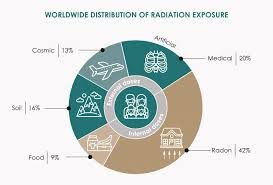The Effects of Mobile Phone Usage on Health
In today's digital age, mobile phones have become an essential part of our lives. With billions of users worldwide, smartphones are indispensable tools for communication, entertainment, work, and learning. However, as their usage continues to increase, concerns about the potential health effects of mobile phones have emerged. This article delves into the various ways mobile phones can impact our health, both physically and mentally, and offers some insights into mitigating these risks.
The Rise of Mobile Phones and Their Popularity
Mobile phones have evolved dramatically since their inception in the 1980s. From basic models that allowed only voice calls to modern smartphones capable of running applications, accessing the internet, and performing complex tasks, mobile phones have drastically changed the way we communicate and interact with the world. The convenience and functionality of these devices have made them integral to daily life, with the global number of smartphone users exceeding 6.8 billion as of 2021.
However, as mobile phones have become more widespread, so too have concerns regarding their health impacts. From potential radiation exposure to the effects of prolonged screen time, many have questioned how the constant use of these devices might be affecting our well-being.
1. Radiation Exposure: Is It Harmful?
One of the most frequently discussed health concerns related to mobile phone usage is the potential impact of radiation. Mobile phones emit electromagnetic radiation (EMF), a form of non-ionizing radiation, which is similar to the radiation emitted by other everyday devices like microwave ovens and radios. Unlike ionizing radiation, such as X-rays, which can cause damage to cells and tissues, non-ionizing radiation does not have enough energy to remove tightly bound electrons from atoms.
However, concerns have been raised regarding the long-term effects of EMF exposure. Some studies have suggested a possible link between heavy mobile phone use and an increased risk of certain types of cancer, particularly brain tumors. The World Health Organization (WHO) classified radiofrequency electromagnetic fields (such as those emitted by mobile phones) as possibly carcinogenic to humans (Group 2B), based on an increased risk of glioma, a malignant brain tumor. Nevertheless, research in this area remains inconclusive, with many studies failing to establish a direct cause-and-effect relationship between mobile phone radiation and cancer.
Experts recommend using hands-free devices or speakerphone functions, limiting direct phone-to-ear contact, and reducing overall screen time to minimize exposure. While conclusive evidence is still lacking, these precautionary measures can help reduce the potential risks associated with mobile phone radiation.
2. Impact on Mental Health
While the physical effects of mobile phones are often debated, there is growing concern over their impact on mental health. With constant notifications, social media updates, and messages, mobile phones have become a source of constant stimulation. This hyperconnectivity can have significant psychological effects, particularly among younger users.
Addiction and Dependency: Mobile phone addiction, or "nomophobia" (the fear of being without a mobile phone), is a growing issue. Research shows that individuals, especially teenagers and young adults, often feel anxiety or distress when they are unable to access their phones. The constant need to check for updates or social media notifications can lead to compulsive behavior, which, in turn, contributes to feelings of stress and anxiety.
Sleep Disruptions: The blue light emitted by mobile phone screens has been shown to interfere with the production of melatonin, a hormone that regulates sleep. Prolonged exposure to blue light, especially before bed, can delay sleep onset, reduce sleep quality, and disrupt circadian rhythms. Studies have found that mobile phone usage in the evening is linked to poor sleep quality and sleep deprivation, which can affect mental health, memory, and concentration.
Social Isolation: Paradoxically, while mobile phones are designed to help people stay connected, excessive use of these devices can lead to social isolation. Constant phone use can prevent individuals from engaging in face-to-face interactions, leading to feelings of loneliness and social withdrawal. Moreover, the pressure to maintain an online persona and engage in social media can exacerbate feelings of inadequacy, depression, and anxiety, especially among teenagers.
3. Physical Health Effects
In addition to the potential mental health concerns, the physical effects of mobile phone use should not be overlooked. Prolonged mobile phone usage can lead to a range of physical ailments, some of which are becoming increasingly prevalent in today's tech-savvy society.
Eye Strain and Digital Eye Fatigue: One of the most common physical complaints associated with prolonged screen use is digital eye strain. Staring at a mobile screen for extended periods can cause discomfort, dryness, blurred vision, and headaches. The phenomenon, often referred to as "computer vision syndrome" or "digital eye strain," is exacerbated by the small screen size of mobile phones and the close proximity at which they are held.
Neck and Back Pain: With the rise of "text neck" and "smartphone posture," the physical strain caused by using mobile phones has become more apparent. People often adopt poor posture while looking at their screens, leading to neck and back pain. The constant bending of the neck to look down at a phone can result in muscular strain and spinal misalignment. Over time, this can cause chronic pain and discomfort, particularly for individuals who spend hours each day on their phones.
Carpal Tunnel Syndrome: The repetitive motion of typing and swiping on a mobile phone can lead to a condition known as carpal tunnel syndrome, where the median nerve in the wrist becomes compressed. Symptoms include tingling, numbness, and pain in the hand and wrist, and in severe cases, it may require medical intervention.
Hearing Loss: Listening to music or watching videos at high volumes through headphones or earphones can lead to hearing loss over time. The risk increases with prolonged exposure to loud sounds. The World Health Organization (WHO) estimates that over 1 billion young people are at risk of hearing loss due to unsafe listening practices, which often include using mobile phones at high volumes.
4. Children and Mobile Phones
children and adolescents are particularly vulnerable to the health effects of mobile phones. Studies have shown that children are more susceptible to the potential risks of radiation because their developing bodies absorb higher levels of electromagnetic radiation than adults. In addition, excessive screen time can lead to developmental issues, including delays in language development and reduced attention span.
Parents and guardians are encouraged to set limits on the amount of screen time their children are exposed to. The American Academy of Pediatrics (AAP) recommends that children aged 2 to 5 should have no more than one hour of screen time per day, while children aged 6 and older should have consistent limits on screen time.
5. Mitigating the Health Risks
While the potential health risks of mobile phone usage are still being studied, there are several strategies to mitigate these risks:
- Take Regular Breaks: The "20-20-20 rule" is a simple guideline to help reduce eye strain: every 20 minutes, look at something 20 feet away for at least 20 seconds.
- Use Hands-Free Devices: Use earphones or a speakerphone to reduce direct exposure to electromagnetic radiation.
- Limit Screen Time: Set limits on how long you use your mobile phone each day to prevent mental and physical strain.
- Avoid Using Phones Before Bed: To ensure better sleep quality, avoid using mobile phones at least 30 minutes before bedtime.
- Practice Good Posture: Be mindful of your posture when using your phone. Keep your phone at eye level to prevent neck strain.
Conclusion
While mobile phones have undoubtedly revolutionized the way we live and interact, it's crucial to be aware of their potential health effects. From radiation exposure to mental health concerns and physical discomforts, mobile phone usage can impact our well-being in various ways. By adopting mindful usage practices and taking proactive steps to mitigate the risks, we can continue to enjoy the benefits of mobile technology while minimizing its negative effects on our health. As research continues, we may gain further insights into how mobile phones affect us, but for now, moderation and balance are key.
href="https://blogger.https://slickquiver.com/kpy542ijrm?key=374ad52b1da5daf69e0cea67de52cbfc.com/img/b/R29vZ2xl/AVvXsEjsJYD80vI4gPA0jakkIevNRgXDmHADS9tU376CcY6YGA2lUp5E38490F1ZtfDJjdIjDqUzpWhwsPvBN6k0df6Yc7XLt33F0LgxXB6vMXqZRnNBA6RwJnoorzAxFns6XT0sL2kEQmOIuyfX8IDrtUAKWmKPKM1X4q_EdrLyBKF6nd5-T_bKfG65LYA5KBVz/s355/download.jpg" imageanchor="1" style="margin-left: 1em; margin-right: 1em;" target="_blank">







